Gaming Performance
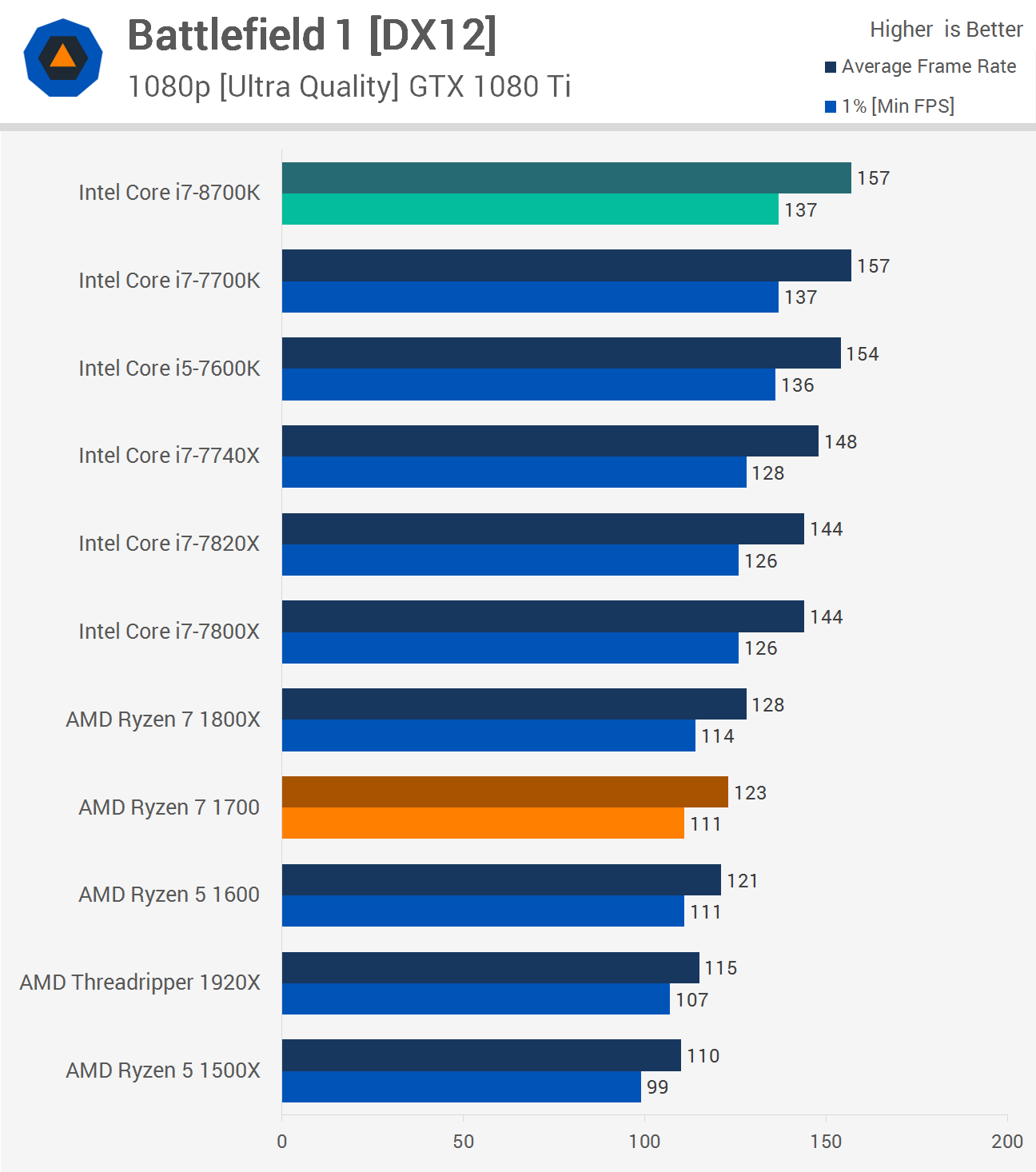
Time for a few quick gaming benchmarks before we look at power consumption and temperatures. Here we tested Battlefield 1 using the DX12 API with the ultra quality preset enabled. All the games have been tested using the GTX 1080 Ti and Vega 64 GPUs.
Even with a GTX 1080 Ti at 1080p, we are GPU limited in Battlefield 1 using the ultra quality settings. For that reason the 8700K is limited to the same 157 fps as the 7700K. The Ryzen CPUs mean while look quite slow despite delivering well over 100 fps at all times. There can be an issue with the Ryzen CPUs when using an Nvidia GPU in DirectX 12 titles so let's check out the Vega 64 results.
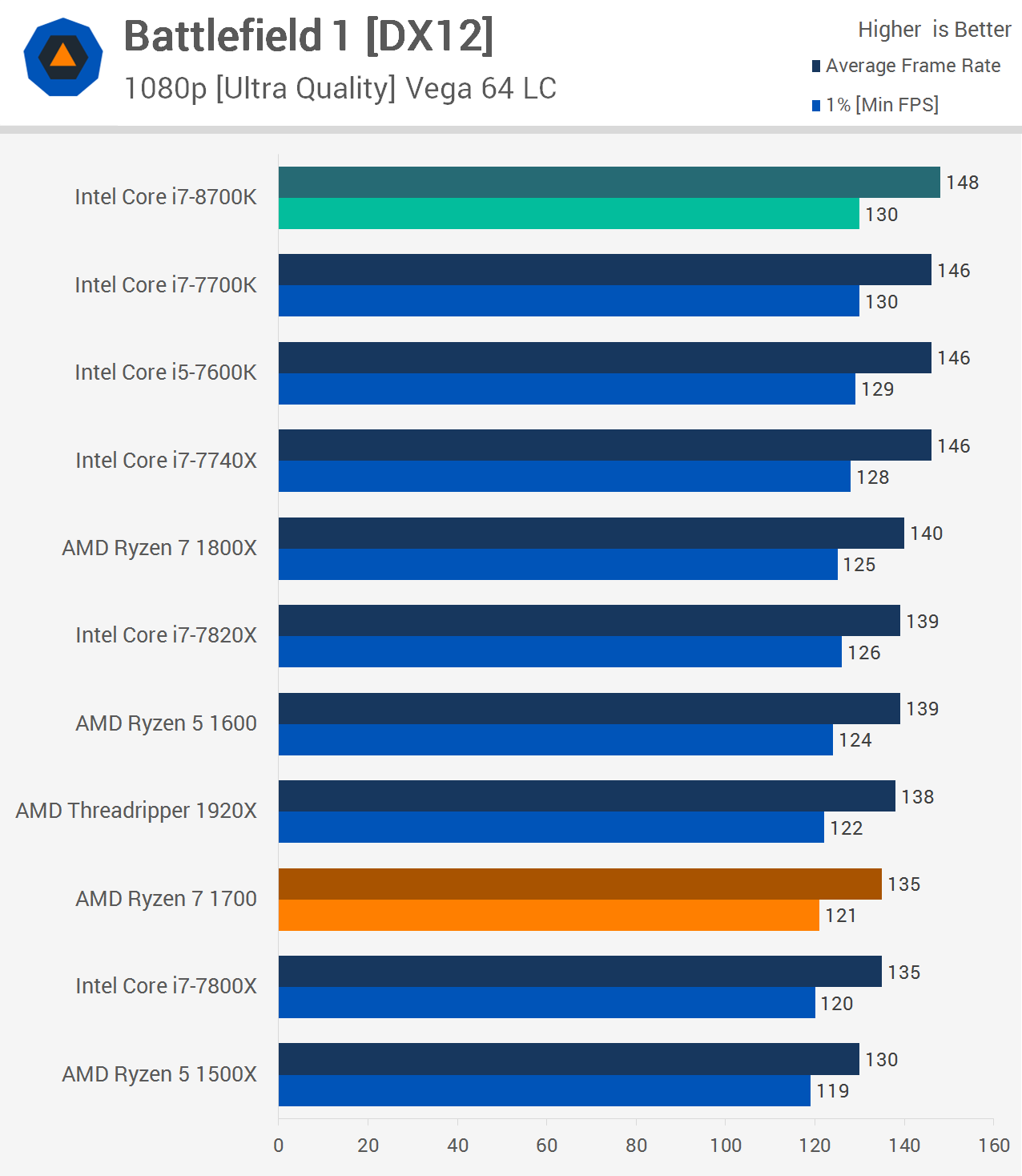
Although we are even more GPU bound with the slower Vega 64 GPU what's key to note here is that while the 8700K and 7700K frame rates are slightly reduced the Ryzen CPUs see a rather significant boost in frame rate. They are of course still slower than the Intel CPUs but the margin is reduced. We'll take a look at this again in a moment while trying to remove the GPU bottleneck.
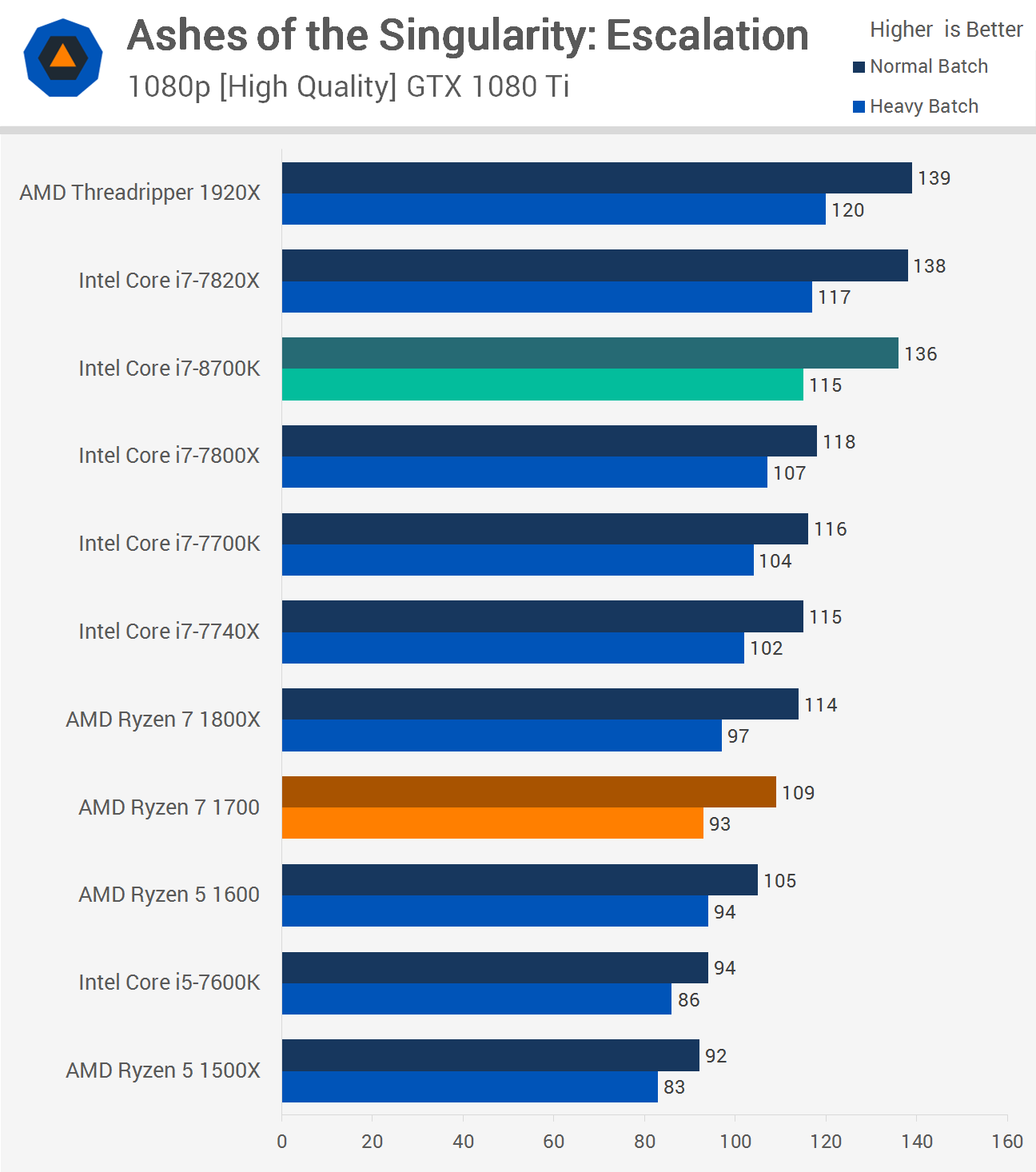
Next up we have Ashes of the Singularity and here the Core i7-8700K really shows that it can do as it roughly matches the Core i7-7820X and Threadripper 1920X in this core heavy game. The average frame rate was boosted by 17% over the 7700K and 25% over the Ryzen 7 1700.
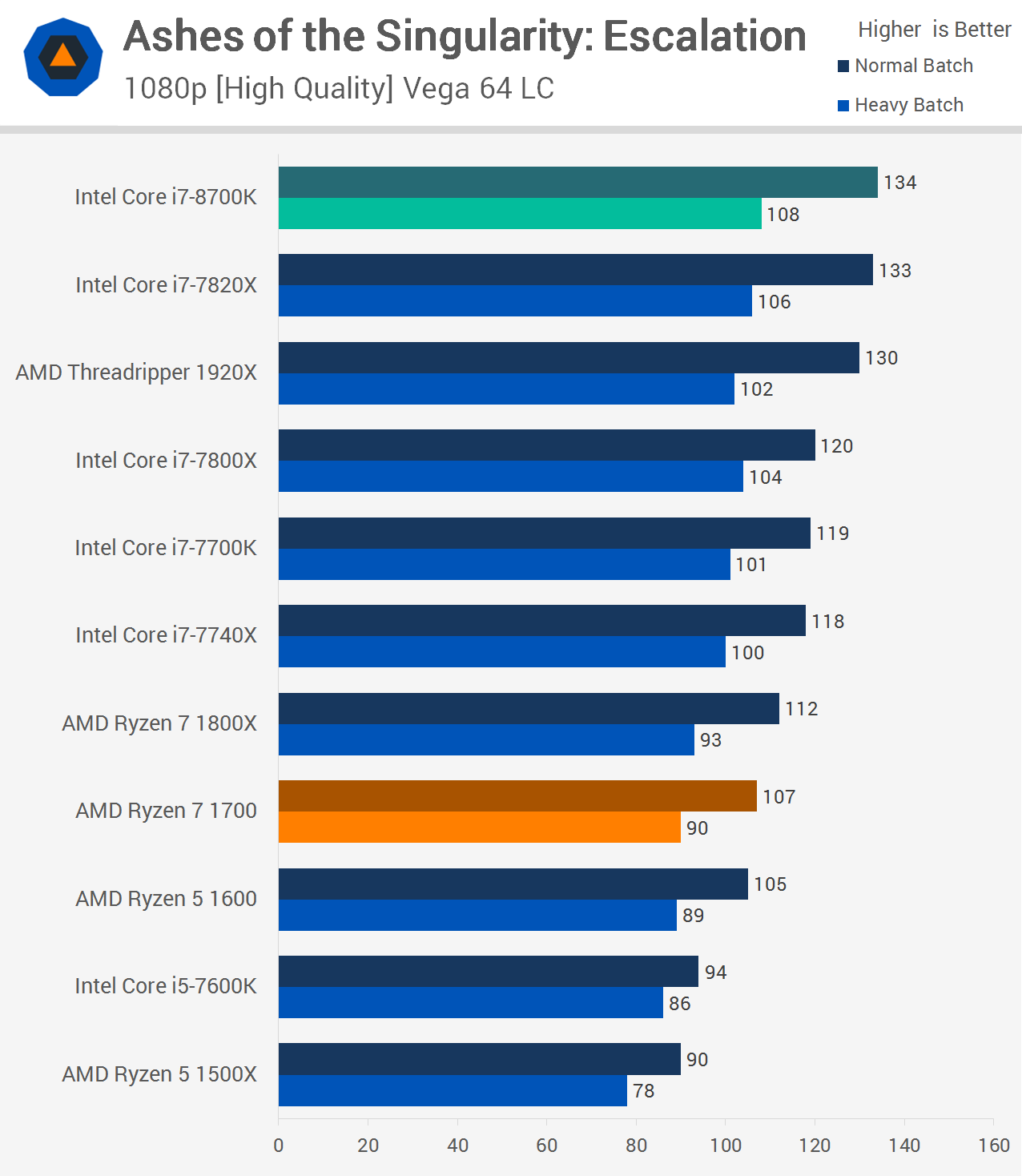
Swapping out the GTX 1080 Ti for Vega 64 actually helps put the 8700K ahead of the Threadripper CPU though with that exception the rest of the margins remain much the same.
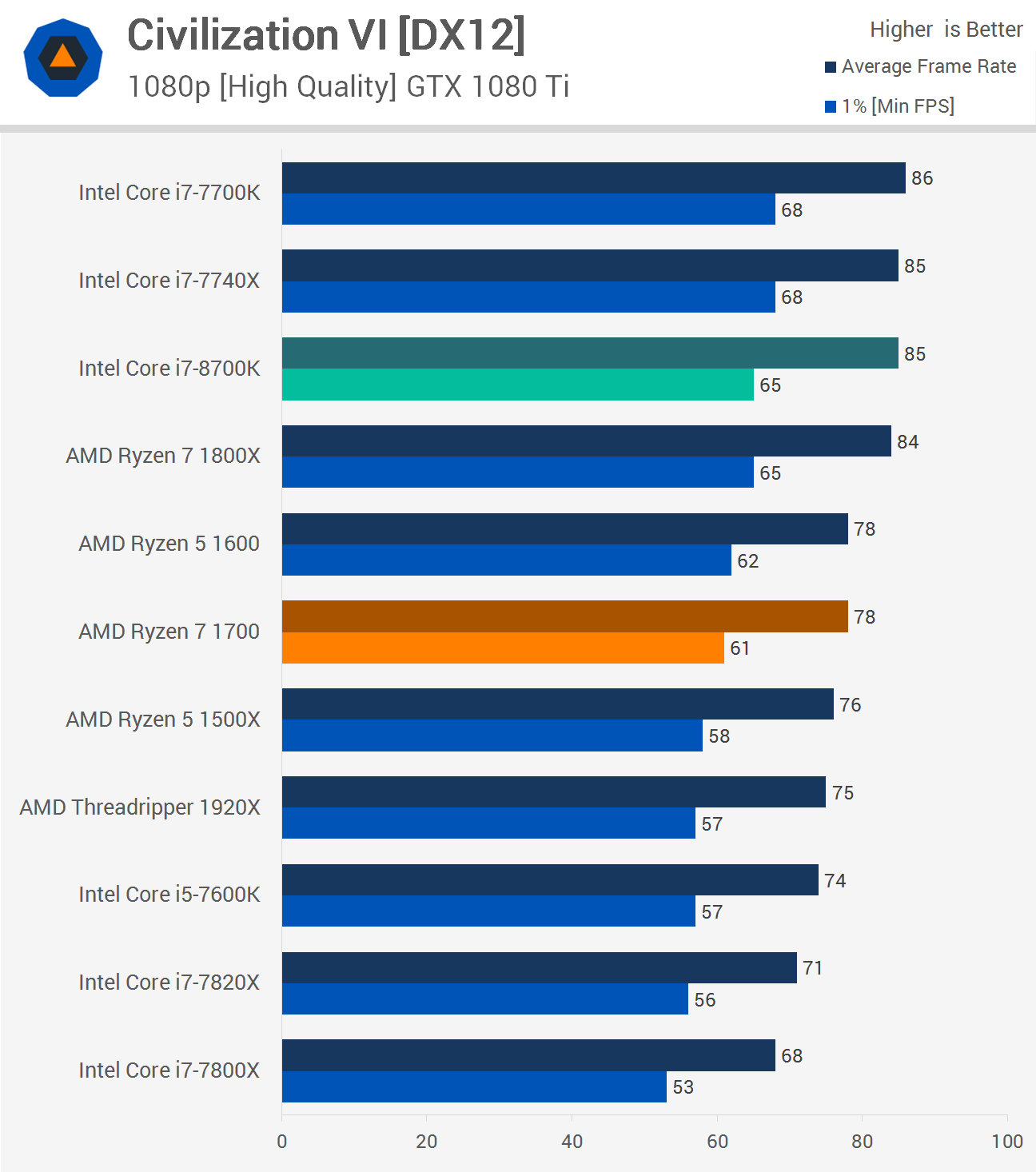
Moving on, the Civilization VI we see that the Core i7-8700K is roughly on par with the 7700K as well as AMD's Ryzen 7 1800X and this is with the GTX 1080 Ti, so some pretty competitive looking results here.
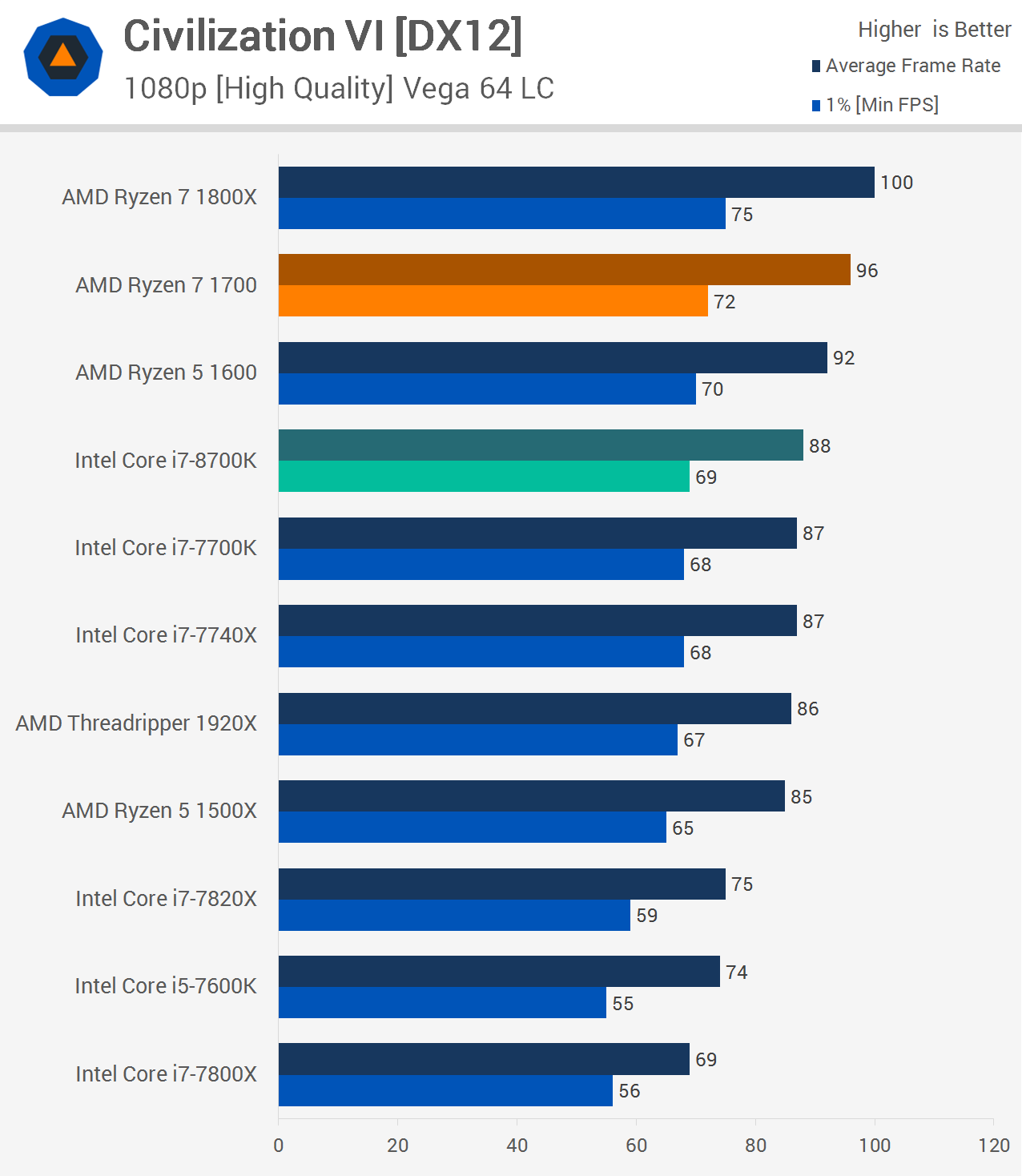
Please note in our Intel Core i9-7980XE & 7960X review the Ryzen 7 frame rates were higher than what's shown here and I wasn't able to determine if this was a mistake on my behalf or if it's down to a game patch or driver update. Previously, the 1800X was pushing 112 fps on average with Vega 64 and now we're down to 100 fps.
I'm constantly re-testing and sometimes we do find a change like this with some games. Mafia III for example was dropped from testing as the performance often changed quite dramatically with each update. Anyway we are still seeing vastly superior performance on the AMD Ryzen 7 CPUs with Vega 64, it's just not as extreme as previously shown.
Whereas the 8700K was 4% faster with Vega 64 compared to the GTX 1080 Ti, the 1800X is almost 20% faster, so Civilization still provides some very interesting results when comparing the GeForce and Radeon GPUs using the DX12 API.

The last game we're going to look at is F1 2017 and first up we have the GTX 1080 Ti results. Here the 8700K was actually slower than the 7700K which is a bit odd, seems this title can get a bit confused when there are more than four cores on offer. The 7700K is clearly faster than the 7600K though, as is the Ryzen 5 1600 over the 1500X.
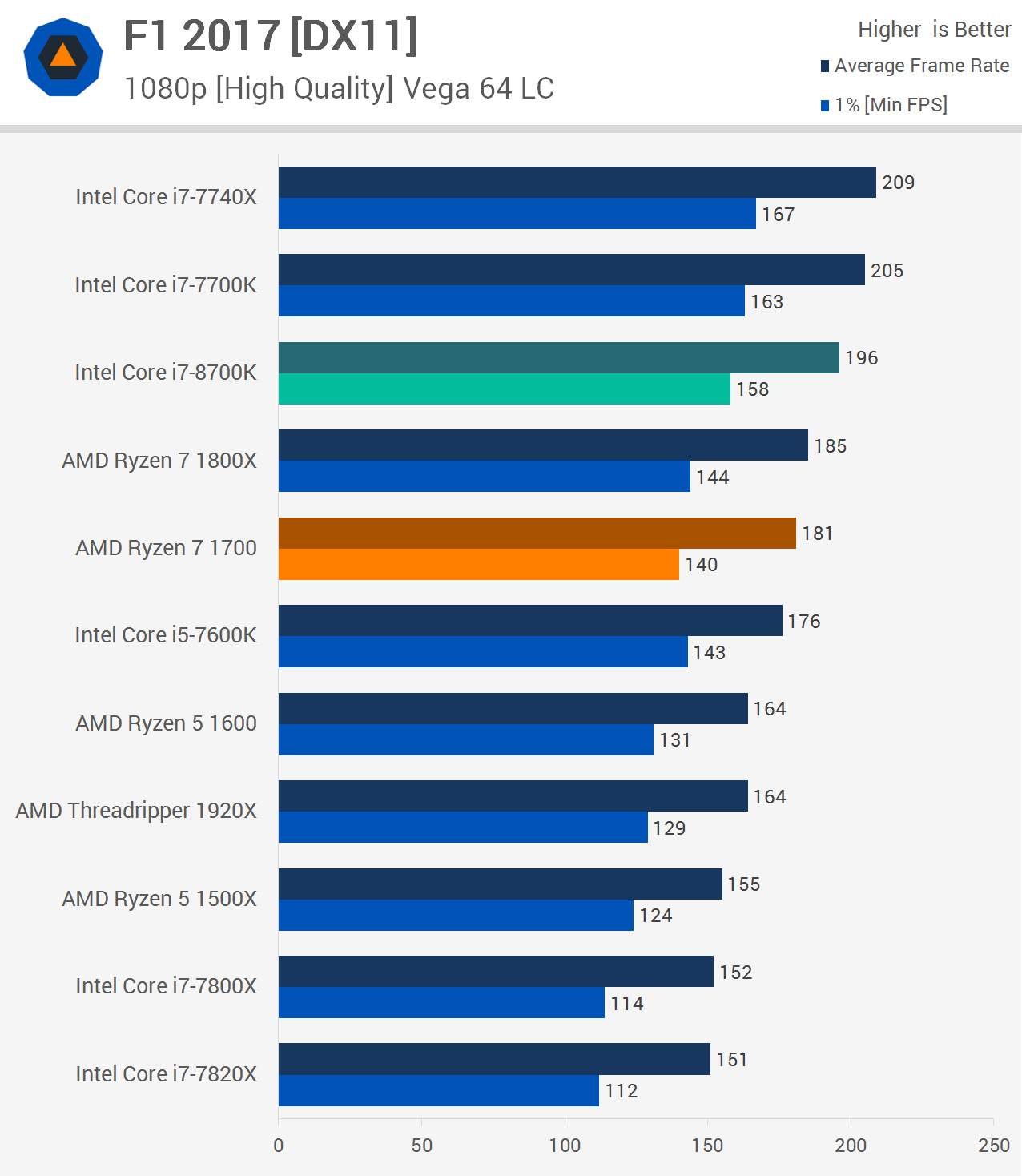
Even with Vega 64 we find much the same between the 7700K and 8700K though there is a bit of reshuffling in the midfield and the Skylake-X parts seem to lose out. Overall though, the 8700K was slightly slower than the 7700K in this title.
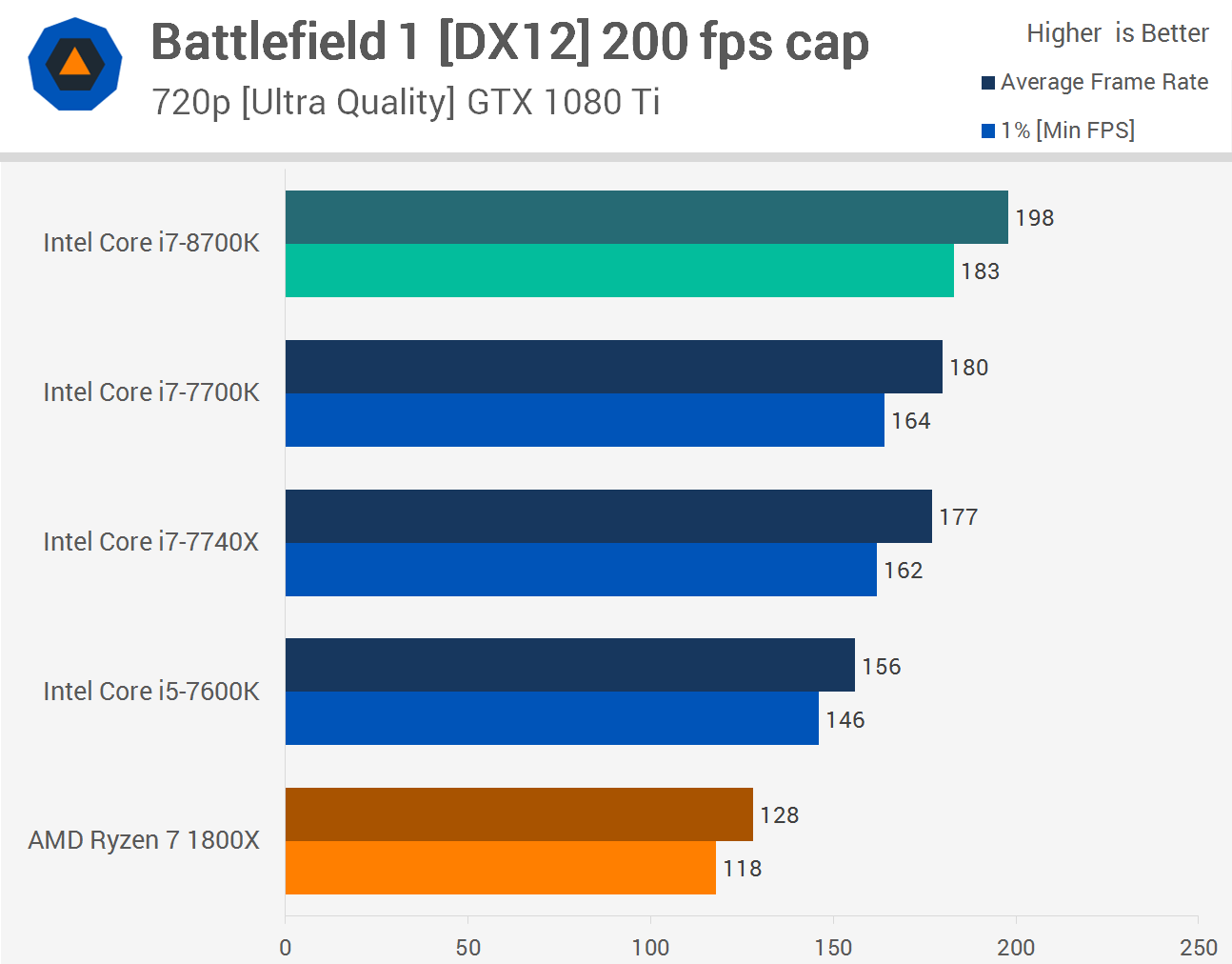
Okay so before we wrap the gaming up let's just quickly retest Battlefield 1 at the ultra low 720p resolution to try and remove the GPU bottleneck while still using ultra quality settings. Previously the 8700K was only able to match the 7700K and wasn't much faster than the 7600K.
However by removing the GPU bottleneck we run into another issue: Battlefield 1's 200 fps hard cap. The 8700K was able to keep the GTX 1080 Ti at 200 fps for the majority of our test and this means it could be much faster than the 10% margin we see here over the 7700K. It's now 27% faster than the 7600K and 55% faster than the Ryen 7 1800X.

Although the Ryzen 7 1800X looked a little sad with the GTX 1080 Ti, it's a different story with the Vega 64 graphics card. Here the R7 1800X is only 20% slower than the 8700K and while that's still a fairly large margin it's much better than what we saw with the GTX 1080 Ti. The 7700K is also quite a bit faster with the Radeon graphics card as well, but unfortunately the 8700K is again limited by the game's artificial frame cap. Anyway, one thing is for sure: the Core i7-8700K is an incredibly powerful gaming CPU.
